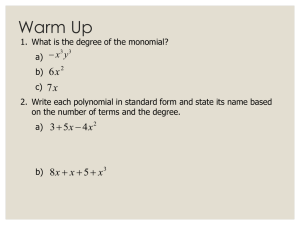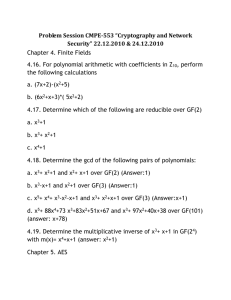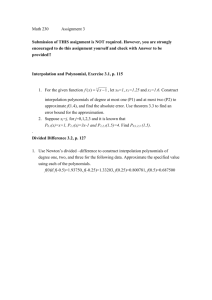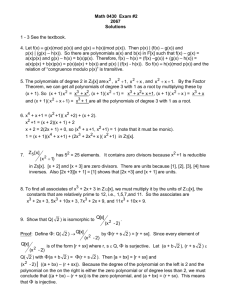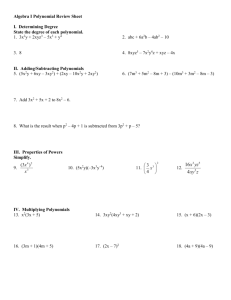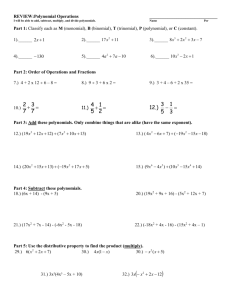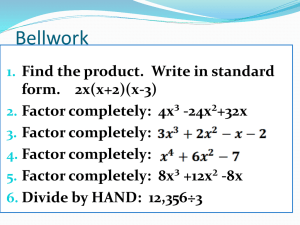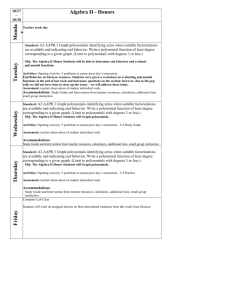Explanation of the Tables
advertisement
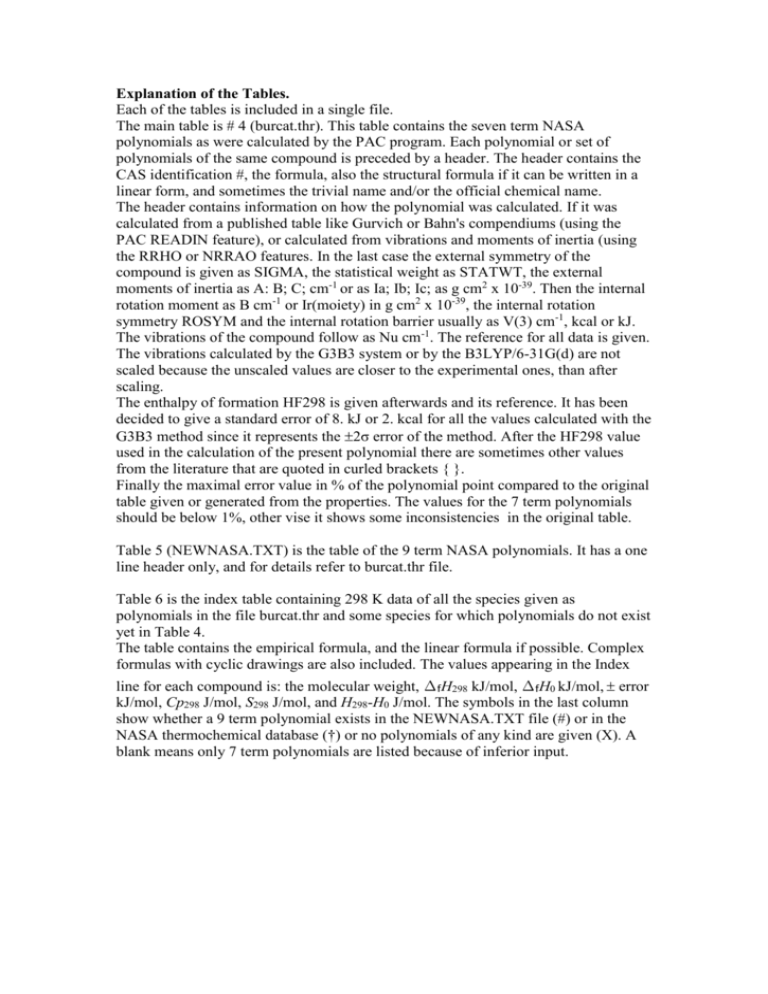
Explanation of the Tables.
Each of the tables is included in a single file.
The main table is # 4 (burcat.thr). This table contains the seven term NASA
polynomials as were calculated by the PAC program. Each polynomial or set of
polynomials of the same compound is preceded by a header. The header contains the
CAS identification #, the formula, also the structural formula if it can be written in a
linear form, and sometimes the trivial name and/or the official chemical name.
The header contains information on how the polynomial was calculated. If it was
calculated from a published table like Gurvich or Bahn's compendiums (using the
PAC READIN feature), or calculated from vibrations and moments of inertia (using
the RRHO or NRRAO features. In the last case the external symmetry of the
compound is given as SIGMA, the statistical weight as STATWT, the external
moments of inertia as A: B; C; cm-1 or as Ia; Ib; Ic; as g cm2 x 10-39. Then the internal
rotation moment as B cm-1 or Ir(moiety) in g cm2 x 10-39, the internal rotation
symmetry ROSYM and the internal rotation barrier usually as V(3) cm-1, kcal or kJ.
The vibrations of the compound follow as Nu cm-1. The reference for all data is given.
The vibrations calculated by the G3B3 system or by the B3LYP/6-31G(d) are not
scaled because the unscaled values are closer to the experimental ones, than after
scaling.
The enthalpy of formation HF298 is given afterwards and its reference. It has been
decided to give a standard error of 8. kJ or 2. kcal for all the values calculated with the
G3B3 method since it represents the 2σ error of the method. After the HF298 value
used in the calculation of the present polynomial there are sometimes other values
from the literature that are quoted in curled brackets { }.
Finally the maximal error value in % of the polynomial point compared to the original
table given or generated from the properties. The values for the 7 term polynomials
should be below 1%, other vise it shows some inconsistencies in the original table.
Table 5 (NEWNASA.TXT) is the table of the 9 term NASA polynomials. It has a one
line header only, and for details refer to burcat.thr file.
Table 6 is the index table containing 298 K data of all the species given as
polynomials in the file burcat.thr and some species for which polynomials do not exist
yet in Table 4.
The table contains the empirical formula, and the linear formula if possible. Complex
formulas with cyclic drawings are also included. The values appearing in the Index
line for each compound is: the molecular weight, ∆fH298 kJ/mol, ∆fH0 kJ/mol, error
kJ/mol, Cp298 J/mol, S298 J/mol, and H298-H0 J/mol. The symbols in the last column
show whether a 9 term polynomial exists in the NEWNASA.TXT file (#) or in the
NASA thermochemical database (†) or no polynomials of any kind are given (X). A
blank means only 7 term polynomials are listed because of inferior input.
